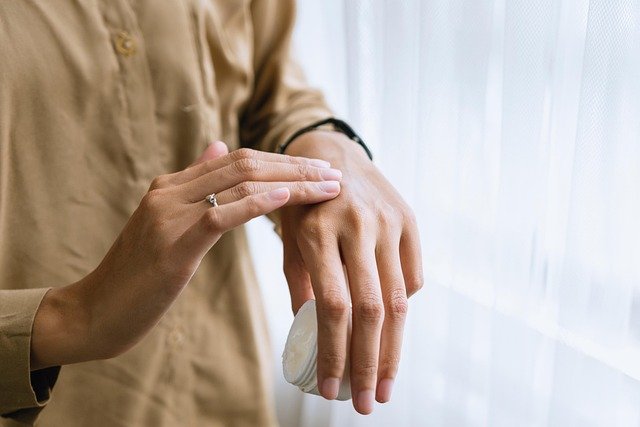Scalp Psoriasis Explained: Symptoms, Causes, and Relief Options
Scalp psoriasis is a chronic skin condition that can cause itching, flaking, and discomfort. In this article, we explore the key symptoms, possible causes, and treatment options that can help manage flare-ups and improve your quality of life without making exaggerated claims.

Scalp psoriasis is a common form of psoriasis that specifically targets the scalp, leading to red, scaly patches, itching, and sometimes bleeding. Unlike dandruff, which involves simple flaking, scalp psoriasis is an autoimmune condition where the immune system mistakenly attacks healthy skin cells, causing them to reproduce too quickly. This results in the buildup of thick, silvery scales that can extend beyond the hairline to the forehead, neck, and ears. Managing this condition requires understanding its symptoms, recognizing what triggers flare-ups, and knowing the available treatment options.
What Are the Common Symptoms of Scalp Psoriasis?
Scalp psoriasis presents with a variety of symptoms that can range from mild to severe. The most recognizable sign is the appearance of raised, reddish patches covered with thick, silvery-white scales. These patches can be localized to small areas or spread across the entire scalp. Itching is another prevalent symptom, often severe enough to disrupt daily activities and sleep. Some individuals experience a burning or soreness in affected areas. In more advanced cases, the scalp may crack and bleed, particularly if scratched. Hair loss can occur, though it is typically temporary and resolves once the inflammation subsides. The visibility of scales and patches can extend to the hairline, making the condition noticeable and sometimes causing self-consciousness. Differentiating scalp psoriasis from seborrheic dermatitis or dandruff is important, as treatment approaches differ significantly.
What Triggers Scalp Psoriasis Flare-Ups?
Understanding what triggers flare-ups is essential for managing scalp psoriasis effectively. Stress is one of the most common triggers, as it can weaken the immune system and exacerbate autoimmune responses. Infections, particularly strep throat, have been linked to the onset or worsening of psoriasis symptoms. Weather changes, especially cold and dry conditions, can dry out the skin and trigger flare-ups. Skin injuries, such as cuts, scrapes, or even harsh hair treatments, can lead to new psoriasis patches in a phenomenon known as the Koebner response. Certain medications, including lithium, beta-blockers, and antimalarial drugs, may worsen symptoms. Alcohol consumption and smoking are lifestyle factors that can increase inflammation and trigger flare-ups. Hormonal changes, such as those during puberty, pregnancy, or menopause, can also influence the severity of symptoms. Identifying personal triggers through careful observation and keeping a symptom diary can help individuals take proactive steps to minimize flare-ups.
What Are the Most Effective Treatment Options for Scalp Psoriasis?
Treatment for scalp psoriasis varies depending on the severity of the condition and individual response. Topical treatments are often the first line of defense and include corticosteroids, which reduce inflammation and slow skin cell production. Coal tar shampoos and solutions have been used for decades to reduce scaling and itching. Salicylic acid helps soften and remove scales, making it easier for other treatments to penetrate the skin. Vitamin D analogs, such as calcipotriene, can slow skin cell growth when used regularly. For moderate to severe cases, phototherapy using ultraviolet light may be recommended. Systemic medications, including oral or injectable drugs like methotrexate, cyclosporine, or biologics, target the immune system and are reserved for cases that do not respond to topical treatments. Biologic drugs, which target specific parts of the immune system, have shown significant success in controlling symptoms with fewer side effects. Combination therapy, using multiple treatments simultaneously, is often more effective than single-agent approaches. Consulting a dermatologist is crucial for developing a personalized treatment plan that addresses individual needs and minimizes side effects.
How Can You Manage Scalp Psoriasis Flare-Ups at Home?
Home management strategies can complement medical treatments and provide relief during flare-ups. Gentle scalp care is essential; avoid scratching, as this can worsen inflammation and lead to infection. Use lukewarm water when washing hair, as hot water can dry out the scalp and increase irritation. Moisturizing the scalp regularly with oils such as coconut, olive, or mineral oil can help soften scales and reduce dryness. Applying these oils before bedtime and covering the head with a shower cap allows for deeper penetration. Over-the-counter medicated shampoos containing coal tar, salicylic acid, or ketoconazole can reduce scaling and itching. Limiting the use of harsh hair products, including dyes, gels, and sprays, prevents further irritation. Stress management techniques such as yoga, meditation, and regular exercise can reduce the frequency and severity of flare-ups. Maintaining a balanced diet rich in anti-inflammatory foods, including fatty fish, leafy greens, and nuts, supports overall skin health. Staying hydrated and avoiding known triggers, such as alcohol and smoking, also contribute to better symptom control.
What Daily Care Routines Are Recommended for Sensitive Scalps?
Establishing a consistent daily care routine is vital for individuals with scalp psoriasis. Start by choosing a gentle, fragrance-free shampoo designed for sensitive skin. Wash hair regularly, but not excessively, as over-washing can strip natural oils and worsen dryness. When shampooing, massage the scalp gently with fingertips rather than nails to avoid irritation. Rinse thoroughly to remove all product residue, which can contribute to buildup and flaking. Apply a moisturizing conditioner to the hair, avoiding the scalp if it tends to become greasy. Use a wide-toothed comb to detangle hair gently, minimizing pulling and stress on the scalp. Avoid tight hairstyles that can cause tension and trigger the Koebner response. Protect the scalp from extreme weather by wearing hats in cold conditions and using sunscreen on exposed areas during sunny days. Incorporate scalp treatments, such as medicated shampoos or topical solutions, as prescribed by a healthcare provider. Monitor the scalp regularly for changes in symptoms and adjust the routine as needed. Consistency and patience are key, as it may take several weeks to see improvement.
Conclusion
Scalp psoriasis is a manageable condition when approached with the right combination of medical treatment, home care, and lifestyle adjustments. Recognizing symptoms early, identifying personal triggers, and adhering to a tailored treatment plan can significantly reduce discomfort and improve quality of life. While there is no cure for psoriasis, ongoing research continues to bring new and more effective therapies to those affected. Consulting with a dermatologist ensures access to the most current treatment options and personalized care strategies.
This article is for informational purposes only and should not be considered medical advice. Please consult a qualified healthcare professional for personalized guidance and treatment.




